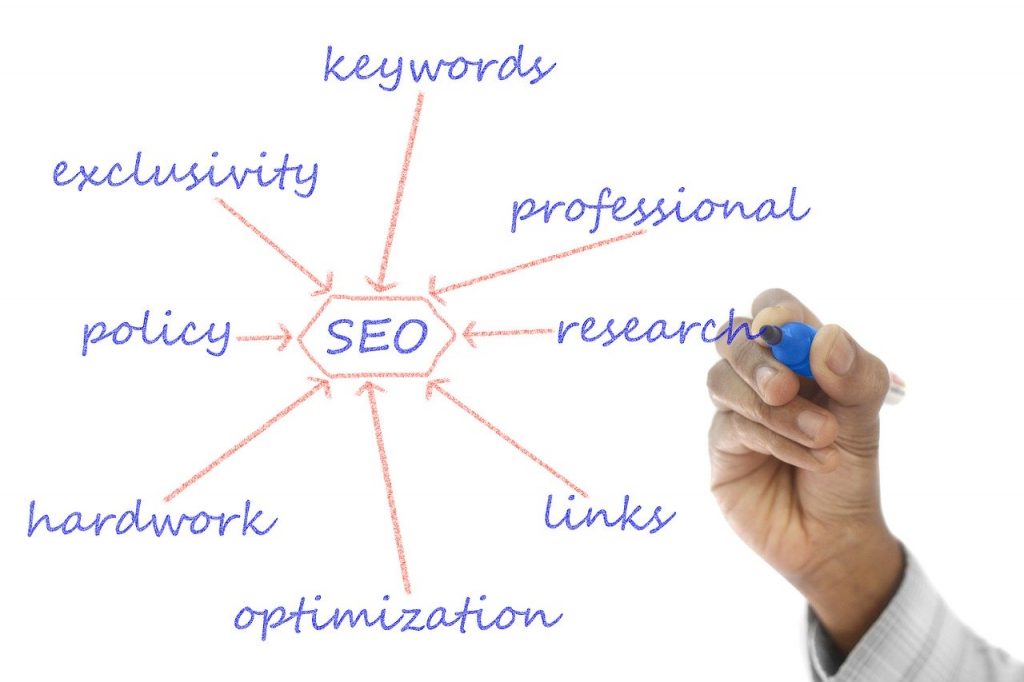Many people start out online expecting the rules to be the same as the offline world. They bring in their rule book for how business is done in their offline world and nothing seems to gain traction FAST Enough. Many quit. Many wait it out but never see results and can’t figure out what happened. Some blame the companies they hired to do SEO but don’t realize the problem was the site/page itself and how and when the content was posted- and where. They also neglect to see that it takes time for the seasoning to happen, for the patterns to develop. They neglect to see the system is at its roots- Organic.
Patterns
(and Patterns within Patterns!)

The first thing you have to realize when marketing online, is that although very simular patterns are shared- the way people consume online/offline content/marketing for brick and mortars, and buy commerce is very different.
In fact, online, things are a bit more predictable, scalable, and organized than offline efforts. It’s actually easier, and more potent to market online, even for an offline brick and mortar business.
Offline marketing is way more expensive than online marketing. You can get out there relatively cheap- or with effort, many of your efforts are just sweat equity. You can get off the ground faster, your expenditures are more reasonable because you get more targeted marketing than say a television commercial (unless your commercial is on the Superbowl but the costs are prohibitive).
Audience

The online audience isn’t browsing, they’re researching, and buying things after they get enough information. That’s the key difference. Offline they get information from friends, commercials, and life around them directly. Online they are looking to make this process more seamless and predictable. This takes focus.
Even if they buy a widget from a Facebook ad, serendipitously just what they’re looking for, the difference here is that the eCommerce seller did your homework for you through targeting things you’d be more likely to want from signals they get from the overall Facebook community.

When marketing online, you need to be aware of how systems work together to create, basically, searchable and orgnizable content. In many ways a search these days is simply to ask a question or type in a few targeted keywords to what your looking for and pages of links appear and are organized based on what you’re asking for.
Vocabulary


The thing that’s lacking is vocabulary in the phrasing to cut through the fluff (anything not related to your direct questions or topic researched and for what specific reason) and get right to the point.
The point for each researcher may be different. One researcher may know a lot of what your article is discussing, but one paragraph or section (found by subheading) may be a key to what they don’t know.
Your content may in part or full be useful as a piece of research for many people needing different things within the scope of the topic. They find part or all of your content by what keywords they use to search the topic. More on that further down…
You have to put in the work (or outsource it), but you have to wait and let your campaign (overall efforts towards getting a site noticed etc) season.
Seasoning

First, you write an article (content). Then you post it somewhere that will get some eyeballs. It takes time for Google and other search engines to crawl the page, and often several times (iterations) over time. This is one of the mechanisms of “Seasoning”. As your content gets more page hits, more comments, more visitors, the search engines are paying attention and building a profile that evolves around anything that affects the content, the system, and the optimal end reader/researcher.
In many ways, it’s a popularity contest but in many ways, it’s not. The popularity factor works to get your content in front of a seed audience. But it’s the timelessness of your content, the informative value, the usefulness- across many people, not just a few, that determines how it flows through the algorithm.
It’s Alive!

The algorithm is a breathing organic driven vehicle because it’s responding to the whole system of nuances within the overall system (driven by search traffic, habits).
If people like your content, comment about it, link to it, or you link out to other pages from it- this helps show your content’s value to the search engines, but it’s how people respond and interact with the content, page, or site or all three, after the content itself and formatting of the page is considered, that determines it’s fate.

Content must be kept up to date and should have some engagement. It also checks for formatting improvements, links out or to other internal pages being added, and so on.
Timeless Content

If your content is timeless and potent (useful today to a lot of people) then the only updates you will need are engagement (comments, links out to or in from other pages or sites, feedback (likes?) and other signals that ultimately determine your content’s rank (usefulness to the audience you’re targeting (who needs this information your writing about).
The Apple a Day… That Keeps Your Content in Play

Following the E-A-T Guidelines Google’s set out, will save you time and expense, because until your site meets them 100% you won’t see optimal movement up the ranking ladder. The guidelines are essentially a blueprint or roadmap to how to get the most out of the system (search engines) and to format your content to fit on the track.
Like acclimating to driving conditions, there are systems and rules to maintain the integrity of the system…
The Right of Way

Like a driver has to acclimate not only the vehicle type, road types i.e. freeway or gravel road, your content needs to adapt to the system (what’s gluing the whole thing together is formatting, context, and the need for answers quickly, and sometimes deeply. It’s an ever-changing landscape of evolution and movement that search engines kindly figure out and keep ahead of the curve (and update their E-A-T if necessary), You just have to, at this point to follow the rules of the road (search engine indexers) and allow the system to season your content- like putting in thanksgiving turkey, you cook it slowly, let the heat and delicious smells envelop the house (people searching for your content/answers).
Organic Search

There is also an organic concept to it. As people need the information and the search engine finds those people (it takes time because people look for things differently and may need to even know the keywords to describe the problem their having, to pull up the optimized content. They take time to arrive at a bigger vocabulary on the topic of their research. Organically they arrive at many pages and adopt the vocabulary in their further searches. As they click through links they may also be sending a signal that the search engine algorithm considers when sending them to a page.
How Content Leaks Out to the Right Eyeballs

As your site or page gets traffic, others may love what you wrote and want to use your article in series with their own. They may have a site explaining other things like your content, but your content says it so well, they will just send their visitors to your site through a link.
That link becomes part of what Google checks. It checks the site it’s on if all is parallel, the content matches niche and concepts, then it clicks the link and checks your site to see if both sides content are good (including formatting), then you may score some points because your content and theirs help the researcher expand their search.
There are many things like this that tend to “season” with time. The components (links, content, etc) of the search engine checks, the organic movement of live searches, and the overall adherence to the important points in the matrix of things you need to be aware of to keep it all working together. In the end, having a perfect system with useless content no longer works to push it to just anyone you target. Your content needs to start out as excellent useful and unique content, focused on a niche or sub-niche
Your content AND how you write it, format it, and timing (give it time to get noticed, build up rank over time) are essential, but only the first step. You have to get it into the right place to get noticed, and that can take time and effort. Using a company that knows SEO and can write and post this content off your site (to link back the traffic to your site), can speed things up as they know how the whole ecosystem works, and exactly what to write and where to post it, but before you do that you should bone up on the E-A-T guidelines so you understand what needs to be done. Good Luck!





